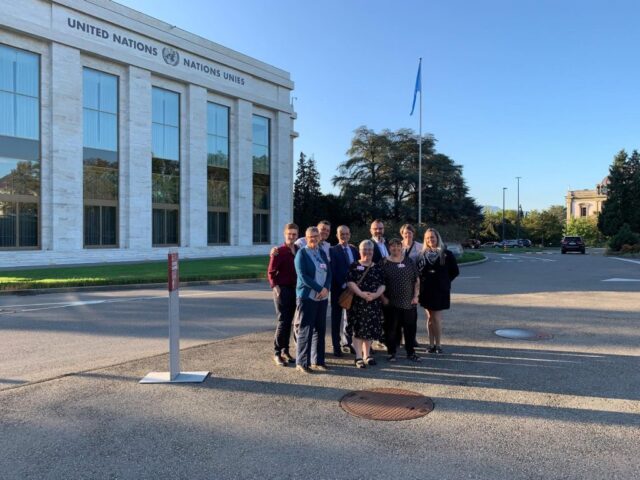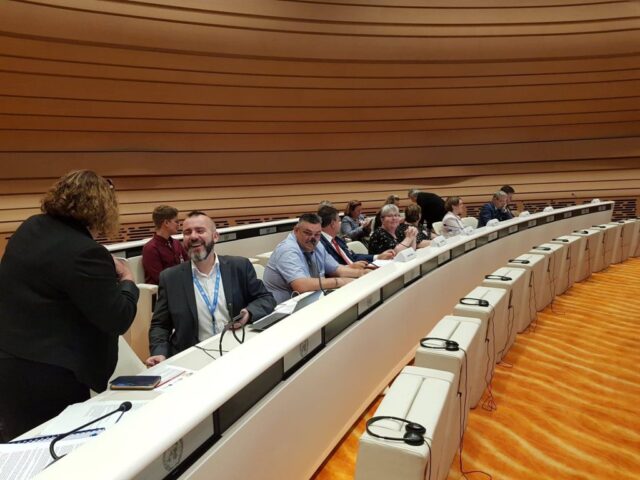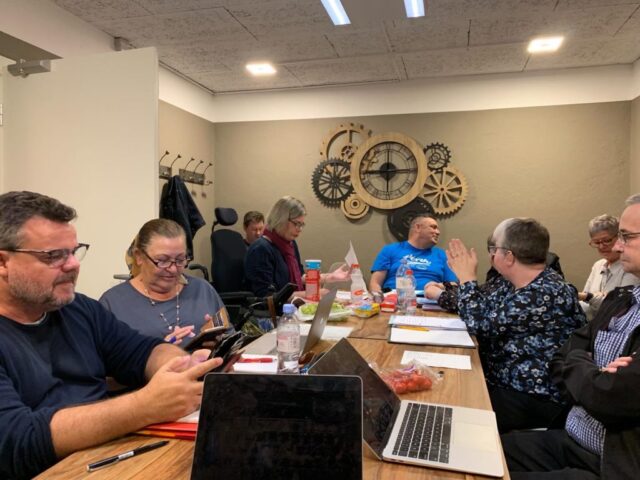
A number of PWDA staff, including our former Co-CEO, are in Geneva this week to support seven people with disability who were chosen as delegates to give evidence to the United Nations Committee on the Rights of Persons with Disabilities (UN Committee) for Australia’s second review under the UN Convention on the Rights of Persons with Disabilities (CRPD).
You can read more about the delegation on the DPO Australia website, and more about PWDA’s work with the CRPD here, including an Auslan introduction to the CRPD.

The delegates’ job is to tell the UN Committee about their own experiences and present the evidence in the Shadow Report. Yesterday they gave their opening remarks, which you can also find on the DPO Australia website.
It’s important for the UN Committee to hear from people with disability in our own words.
We fought hard for the CRPD to be written and ratified, but it’s not enough for it to say what our rights are. To make our rights real, the people in power need to change how they act, and the institutions that affect our lives need to change their rules and how they are run.
To make those changes happen, we need enough people, with and without disability, to work together and put pressure on those people and institutions – governments, corporations, and all sorts of other organisations – so that change becomes a priority for them.
And to make sure those changes really help us, instead of just letting powerful people feel good about doing something nice but leaving us with the same problems we started with, we need people with disability to be at the centre of that work. We need everyone to hear our voices and listen to our ideas. We need to be believed when we say something isn’t working, or could be working better.

That means all sorts of people with all kinds of disability, because many of the issues in the Shadow Report affect some groups more than others. Our delegation to the UN is a diverse group of people with disability and, in their opening statements to the UN Committee, has already brought attention to issues such as the extreme poverty of Indigenous people with disability and their disproportionate incarceration, the effects of violence against women with disability, discrimination against parents with intellectual disability, segregation of children and neglect of older people with disability, issues with the mental health sector that primarily affect people with cognitive and psychosocial disability, and more. You can download their full statements here.
Keep an eye on the DPO Australia website and twitter account for more details from Geneva in the next few days!
